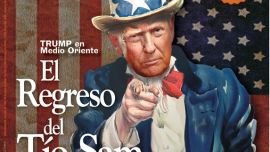The Rio de Janeiro Olympics was a world class party, but a year later, there's no end in sight to the painful hangover gripping Latin America's biggest country.
Brazilians have got used to public officials' incompetence and corruption. After all, the country has spent the last three years mired in a historic graft probe reaching to the top of politics and business. But even hardened Brazil watchers are cringing as details emerge of the thieving that marked the run-up to the first ever Summer Games held on the continent.
While ordinary Brazilians were suffering through the country's deepest recession on record, Rio state and city's leaders treated the Olympic build-up as a personal cash machine. It was a corruption "trampoline," as prosecutor Fabiana Schneider puts it.
At the head of the feeding frenzy was state governor Sergio Cabral, sentenced in June to 14 years prison for taking kickbacks from construction companies working in the city.
Although he left office in 2014, the Games were awarded in 2009, meaning he had a steering hand in numerous projects, including refurbishment of the iconic Maracanã football stadium, where the opening and closing ceremonies were held in 2016.
Prosecutors say Brazil's Olympics leadership planned what amounted to major robbery from the start, by bribing the International Olympic Committee to choose Rio over Chicago, Madrid and Tokyo.
On September 5, Brazilian police, accompanied by French investigators, took Brazilian Olympic Committee chief Carlos Nuzman in for questioning and searched his house.
He has not been charged but is suspected of having been part of a plot by a Brazilian businessman to buy the influential vote of Senegalese IOC member Lamine Diack, Schneider said.
Violence and poverty
The Games – showcasing moving ceremonies, the exploits of Jamaican sprinter Usain Bolt and US swimming superman Michael Phelps and Brazilian fans' enthusiasm – went smoothly.
But as soon as the athletes packed their bags and cameras stopped rolling, barely hidden problems erupted around Brazil's second city.
Eduardo Paes, Rio's mayor during the Olympics, said he had made the city, boosted by the temporary deployment of 50,000 troops, "the safest place in the world." That doesn't apply anymore.
Muggings have rocketed in richer neighbourhoods, parts of the favelas are like war zones and stray bullets fired from high powered rifles mean that no one is safe. The federal government has brought the army back to help outgunned police. And despite promising there would be no white elephants, authorities have struggled to find uses for the specially built facilities.
Parts of the Olympic Park are sporadically open to public events, but much of the complex is eerily vacant. In late July, the state-of-the-art velodrome with its wooden track caught fire and was heavily damaged.
The Arena of the Future, where handball games were played, was planned to be dismantled and used to build three schools in poor neighborhoods. However, budget shortages mean that project has yet to get off the ground.
Mario Andrada, spokesman for the Rio organising committee, insists that the legacy "is just taking time to put in place."
A metro line extension and a new rapid bus network are among the tangible benefits for ordinary Rio residents from the Games.
However, with hotel occupancy plummeting, unemployment soaring and ever more homeless in the streets, the widespread feeling is of an economy that failed to benefit from the party.
According to the National Business Confederation, 5,000 people got tourism jobs as a result of the Games. But just in the first five months of this year the sector shed 9,000 jobs.
- AFP
by Sebastian Smith

















Comments